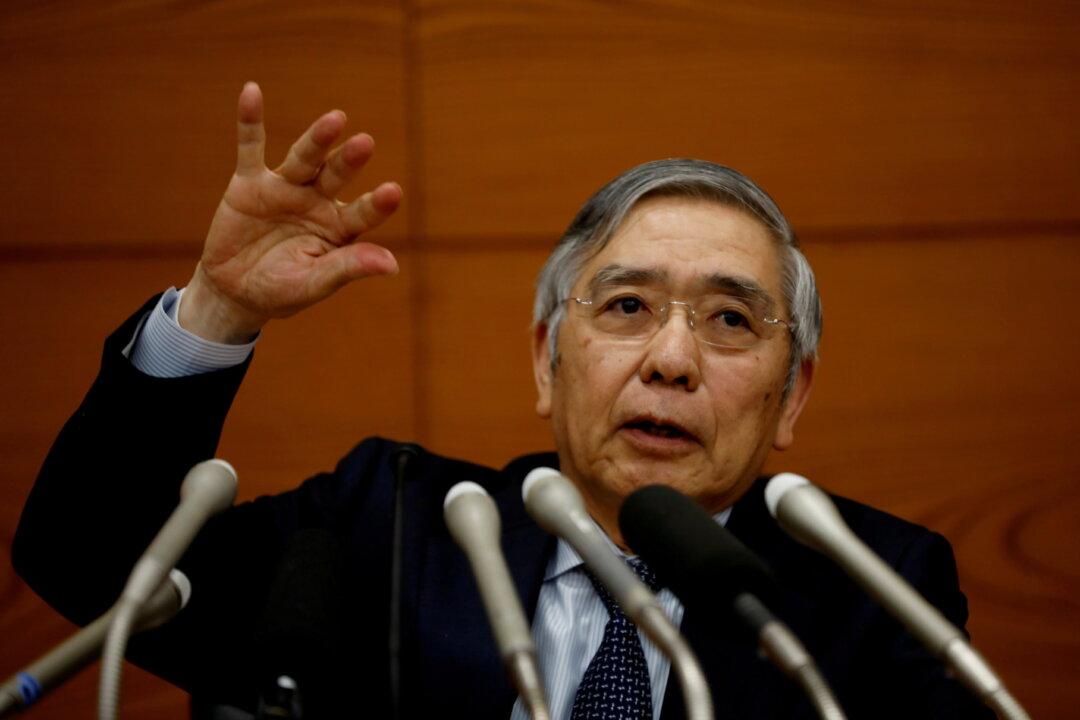TOKYO—Bank of Japan (BOJ) Governor Haruhiko Kuroda on Monday warned of “very high uncertainty” over the economic outlook and stressed anew the central bank’s readiness to ramp up stimulus as needed to underpin a fragile recovery.
The remarks reinforce market expectations the BOJ will remain an outlier among a global wave of central banks raising interest rates to combat soaring inflation.





